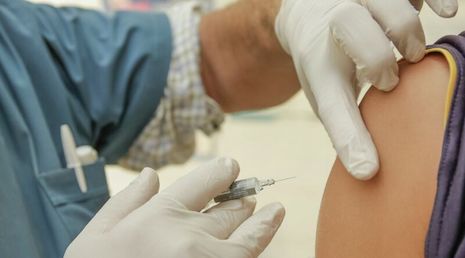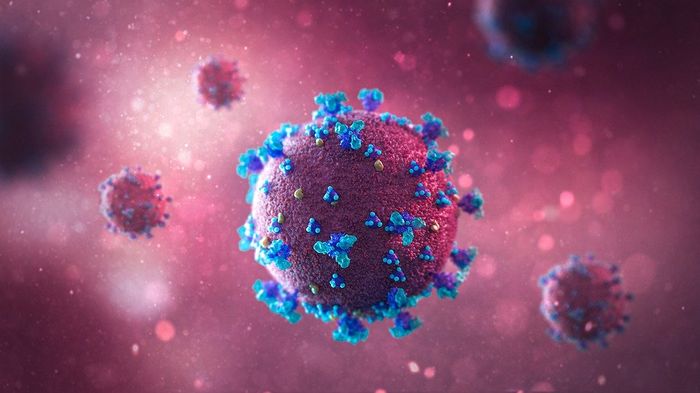A global pandemic requires a global solution
Emily Sissons explores the problems associated with unequal access to vaccines, and argues for a more global fix.

Vaccines provide a glimpse of hope that the end of the Covid-19 pandemic might be in sight. However, equitable access to these vaccines is far from global. Lower-income countries in the “Global South” struggle with great uncertainty about access to vaccines, whilst the “Global North” pushes ahead with mass inoculation campaigns. The ongoing pandemic is worsening health inequalities between the Global North and South, causing disastrous consequences for the populations of the world’s poorest countries.
The policy of “vaccine nationalism” carried out by high-income countries such as Canada, the UK, and the USA, whereby nations hoard vast stocks of Covid vaccines, has damaged the possibility of a coordinated global response to the pandemic. Respectively, these countries possess enough vaccines to provide five, four, and three doses per each person of their population. This practice develops immense international competition for remaining doses, with the lowest income countries inevitably losing out because they cannot afford the rising prices. Wealthier countries were able to place multiple advanced orders with a wide range of pharmaceutical companies, therefore “hedging their bets” and capitalising on lower prices at the very beginning of the production process. Lower-income countries did not have the option of buying such large quantities, especially with no guarantee of effectiveness.
“The pharmaceutical industry has been granted a significant role in determining the pandemic’s course, so far demonstrating a strong focus on profit-making.”
This unjust situation is not created purely by the self-interested policies of the Global North. The vast pharmaceutical companies that have developed the most successful vaccines (UK-based AstraZeneca, and US-based Pfizer and Moderna), have declined to share intellectual property rights, which prevents the manufacturing of cheaper alternatives that would be affordable to low-income countries. The pharmaceutical industry has been granted a significant role in determining the pandemic’s course, so far demonstrating a strong focus on profit-making.
The vast divide between the relatively stable position of the Global North, and the limited access within the Global South, led to the partnership of several global health organisations (including the WHO), and the Covax scheme. This initiative allows poorer countries to pay a maximum of three dollars per vaccine dose, a highly subsidised price thanks to donations from around 170 higher-income countries. Although AstraZeneca, and smaller vaccine manufacturers including Novavax and Sanofi, have signed up to provide vaccines under the scheme, Pfizer and Moderna have not, meaning their vaccines cost five to ten times more to purchase. The British Medical Journal found that 67 low-income countries have been entirely unable to purchase any vaccines and are wholly dependent on the Covax scheme. Currently, the scheme only has enough stock to reach ten percent of these countries’ populations, which is a conspicuous and severe shortage, endangering the lives of millions across the Global South.
Vaccine access is just one of numerous healthcare challenges faced by such countries. Many of these nations lack adequate healthcare facilities and access to expensive vaccine storage equipment, have insufficient PPE, and have large populations isolated rural areas. The WHO estimates that already 20 million children do not have full access to the necessary vaccines annually. These countries are already committed to running multiple national vaccination programmes for infectious diseases not yet eradicated, so Covid-19 presents another strain on already limited resources. Yet, unequal access to vaccine supply during pandemics is not new. During the 2009 H1N1 ‘swine flu’ pandemic, wealthier countries within the Global North were able to gain a monopoly over the vaccine supply through expensive advance purchase agreements.
“High-income countries must accept equitable access to vaccines.”
Countries with large manufacturing bases capable of producing vaccines, such as India, Bangladesh and Indonesia, and countries with the infrastructure to run vaccine trials, such as Brazil and Mexico, have successfully secured vaccine access. Nevertheless, the global health divide persists because developed countries have, to date, exclusively prioritised their own citizens. Thankfully, domestic vaccine campaigns are beginning to save many millions of lives. However, now that these campaigns are successfully established, governments must consider a more long-term global solution to the pandemic. High-income countries must accept equitable access to vaccines.
We are bombarded with rhetoric about getting the economy moving again, but this must include the global economy, not just the domestic one. Vaccinating in some countries but not others will continue to hinder tourism and trade for many years to come, further impacting countries already suffering economic distress. High-income countries should also consider a moral responsibility to provide aid to those less fortunate. The coronavirus pandemic is unprecedented and almost unpreventable; sadly, global health inequalities are not.
 News / Cambridge academics sign open letter criticising research funding changes22 February 2026
News / Cambridge academics sign open letter criticising research funding changes22 February 2026 News / Supporters protest potential vet school closure22 February 2026
News / Supporters protest potential vet school closure22 February 2026 News / University Council rescinds University Centre membership20 February 2026
News / University Council rescinds University Centre membership20 February 2026 News / Hundreds of Cambridge academics demand vote on fate of vet course20 February 2026
News / Hundreds of Cambridge academics demand vote on fate of vet course20 February 2026 Comment / A tongue-in-cheek petition for gowned exams at Cambridge 21 February 2026
Comment / A tongue-in-cheek petition for gowned exams at Cambridge 21 February 2026










